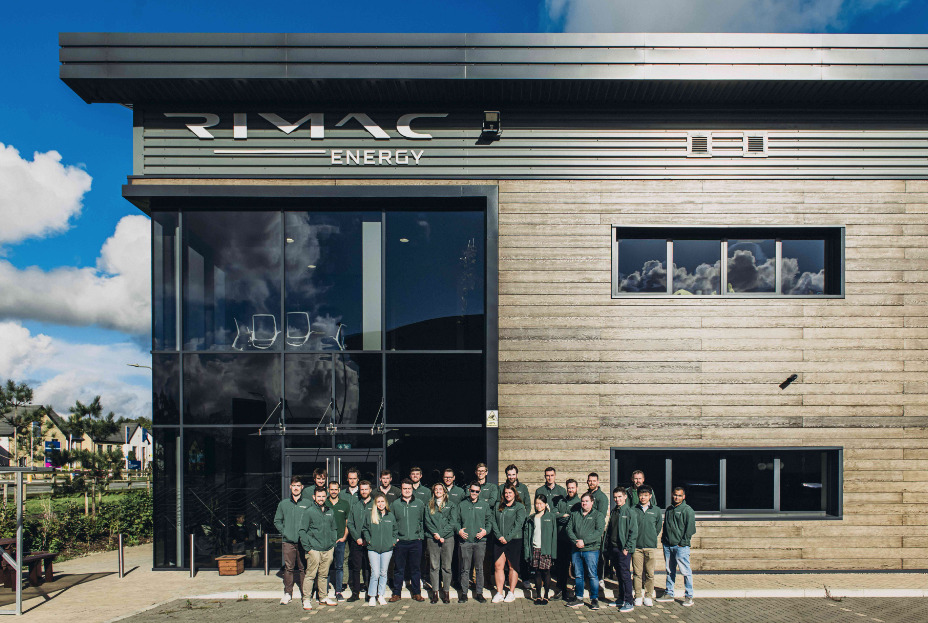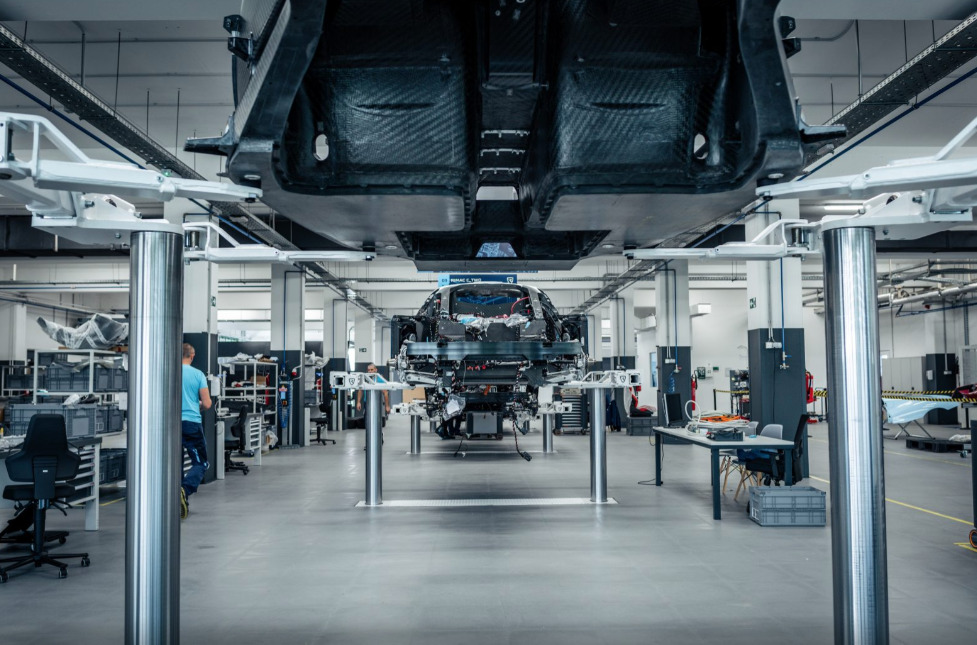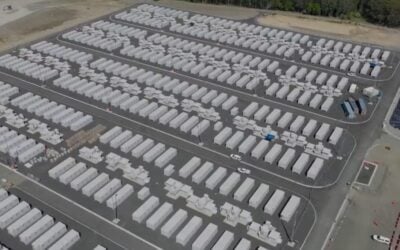
The energy storage arm of EV supercar technology firm Rimac has opened its UK innovation and manufacturing facility, where it will build the first units of its SineStack BESS platform.
Rimac Energy, which launched last year, said yesterday (26 March) that the new 1,850 m2 facility in Witney, Oxfordshire, has opened and will house its UK team, creating 70 high-skilled jobs.
It will serve as a hub for technological innovation and will also manufacture the first units of the company’s 790kWh SineStack battery energy storage system (BESS) product, which it revealed last year at Solar Media’s Energy Storage Summit Central Eastern Europe (CEE) 2023 in September. It then officially launched it, with pictures, a month later.
Those first units will go to projects for Croatian renewable energy developer and operator ENNA, the company’s head of business development said in an interview with Energy-Storage.news at the Energy Storage Summit EU in London last month (Premium).
Try Premium for just $1
- Full premium access for the first month at only $1
- Converts to an annual rate after 30 days unless cancelled
- Cancel anytime during the trial period
Premium Benefits
- Expert industry analysis and interviews
- Digital access to PV Tech Power journal
- Exclusive event discounts
Or get the full Premium subscription right away
Or continue reading this article for free
The SineStack’s primary differentiating aspect is a distributed power conversion system (PCS) architecture whereby the inverter capability is spread across all 18 modules in the 790kWh system. This gives the product an industry-leading cycle lifetime, AC round-trip efficiency and energy density, head of engineering Rower Moorhouse claimed when revealing the product at the CEE event.
Rimac will later launch a manufacturing facility at its Croatia headquarters to manufacture SineStack at-scale, with the aim of being one of Europe’s largest BESS manufacturers by 2030. The capacity of BESS manufacturing in Europe is hard to gauge as the majority is contracted out to third parties and figures are rarely revealed.
In related news, reports have emerged that China-based lithium-ion battery manufacturer EVE Energy is in talks to invest in a battery gigafactory in Coventry, West Midlands, as reported by our sister site Current. It would be part of a new ‘UK Centre for Electrification’ technology zone, with initial investment touted at £1.2 billion (US$1.5 billion).
The facility would likely be aimed at the EV sector with the Midlands home to manufacturing plants from Jaguar Land Rover, Aston Martin Lagonda and BMW.






